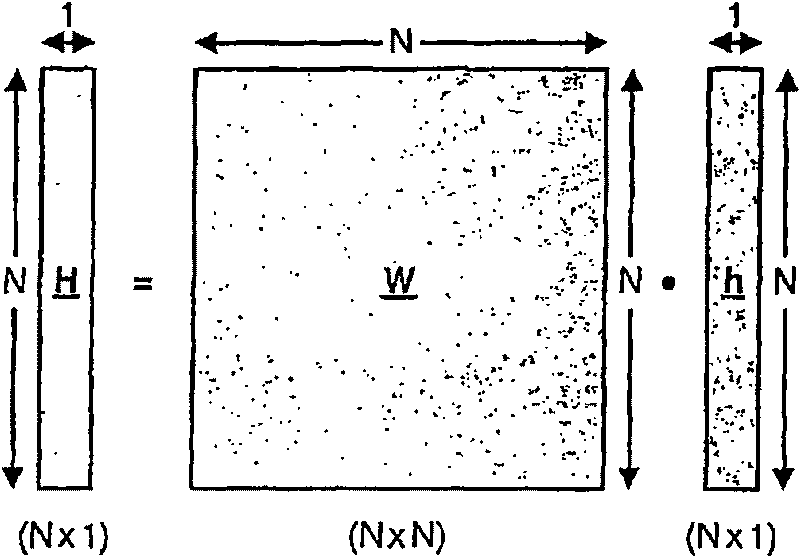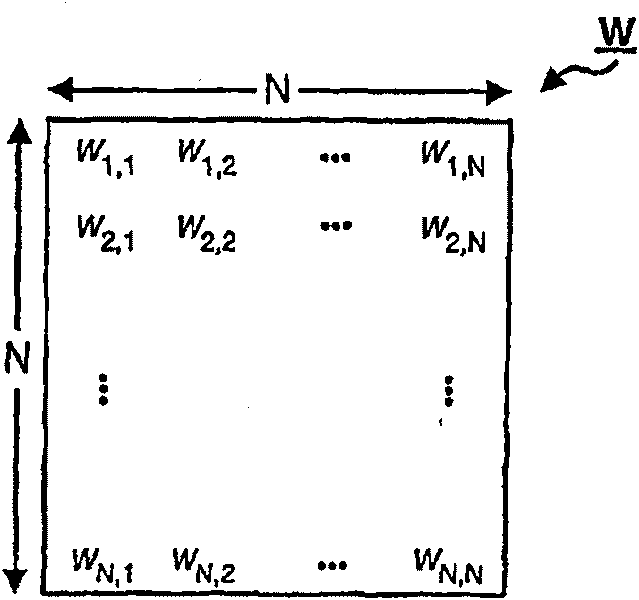Reduced complexity channel estimation for wireless communication systems
A wireless communication system, channel estimation technology, applied in channel estimation, transmission system, baseband system, etc.
- Summary
- Abstract
- Description
- Claims
- Application Information
AI Technical Summary
Problems solved by technology
Method used
Image
Examples
Embodiment Construction
[0024] The channel estimation techniques described here can be used in any communication system with multiple subbands. For simplicity, these techniques are described specifically for OFDM systems.
[0025] figure 1 A subband structure 100 that may be used in an OFDM system is shown. The overall system bandwidth of the OFDM system is W MHz, and OFDM is used to divide this bandwidth into N orthogonal subbands. The bandwidth of each subband is W / N MHz. In a typical OFDM system, only M of the total N subbands are used for data transmission, where M<N. These M available subbands are also called data subbands. The remaining N-M subbands are not used for data transmission and are used as guard subbands to allow the OFDM system to meet the spectral mask requirements. The M available subbands include subbands F to F+M-1.
[0026] For OFDM, the data to be transmitted on each subband is first modulated (ie, symbol mapped) using the particular modulation method selected for that su...
PUM
 Login to View More
Login to View More Abstract
Description
Claims
Application Information
 Login to View More
Login to View More - R&D
- Intellectual Property
- Life Sciences
- Materials
- Tech Scout
- Unparalleled Data Quality
- Higher Quality Content
- 60% Fewer Hallucinations
Browse by: Latest US Patents, China's latest patents, Technical Efficacy Thesaurus, Application Domain, Technology Topic, Popular Technical Reports.
© 2025 PatSnap. All rights reserved.Legal|Privacy policy|Modern Slavery Act Transparency Statement|Sitemap|About US| Contact US: help@patsnap.com



